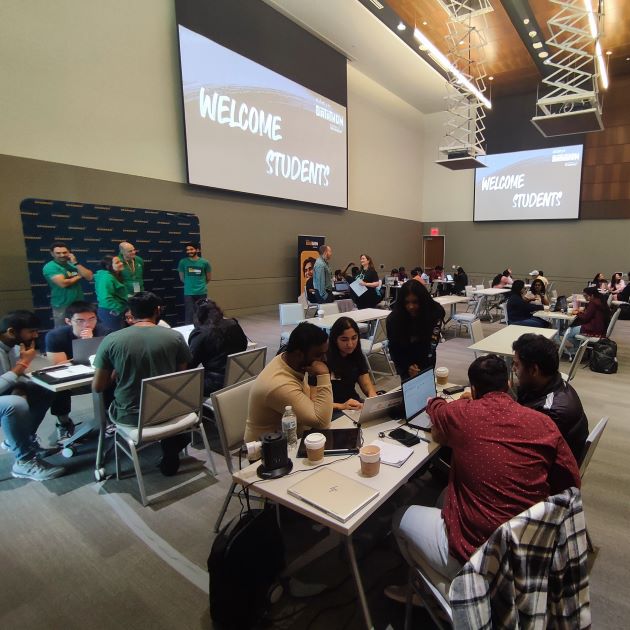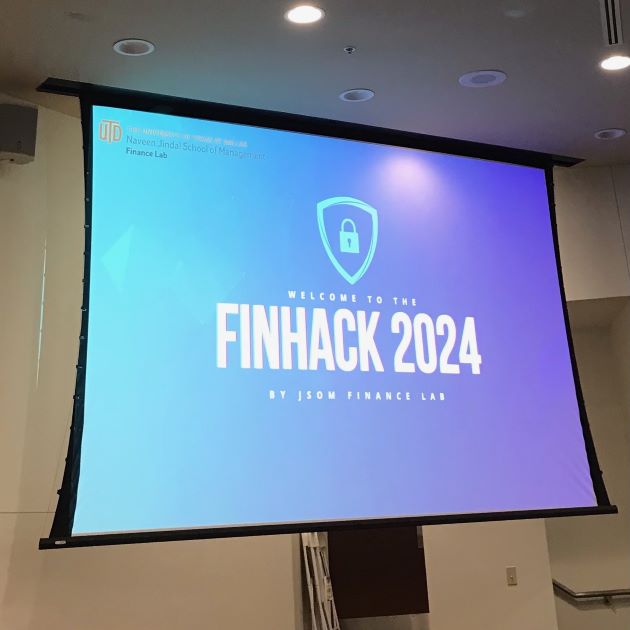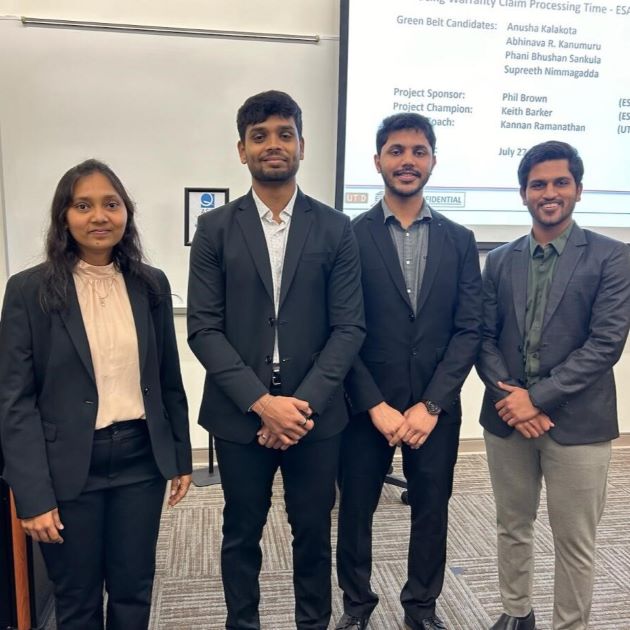A supply chain capstone project means opportunities: for students to test their knowledge at a company, for an organization to get problem-solving help and for the Naveen Jindal School of Management as well as UT Dallas to develop relationships with industry.
Students usually participate in a capstone project at the end of their degree programs. These projects allow them an opportunity to apply what they have learned in courses in an industry setting. In addition, this work can serve as a résumé-enhancing springboard into a new career.

For a business that participates, says JSOM Clinical Associate Professor David R. Parks, “the projects are also about helping the companies with challenging problems. We do a wide range of projects in many areas with many different types of companies. JSOM is also a resource for the community since we also do projects for nonprofit organizations.”
Parks, who oversees MS in Supply Chain Management capstone projects, gets them underway by consulting with potential client companies to understand their needs. If a project proceeds, he organizes the students into project teams for each assignment.
Teams consist of four to six students who work together for a semester on a project that usually takes 10 to 12 weeks to complete.
“The capstone is very team-oriented partly because that’s what you’ll face in the real world,” Parks says.
Parks remains in regular contact with the company throughout the project to make sure all students are delivering what is needed and expected. He also is briefed through weekly presentations students make in class to show the scope of their work and how it is progressing.
Two Find Their Stride
In his final semester last spring before earning his master’s degree, Sachin Chindak was part of a five-member team chosen to help a logistics company. The team’s capstone was a research project that studied type of goods moved in cities, identified top carriers and included a cost-benefit analysis of in-house logistics vs. outsourcing contracted dedicated resources, vs. third-party logistics.
“They wanted to have research and cost analysis for various freight management models,” Chindak says of the company’s assignment. “We had many cost-benefit analyses tied to customer performance levels.”
A second MS in SCM spring graduate, Catherine Zhang was able to work with another supply chain company on a capstone team helping with a conversion that can often be a major headache — the move to paperless.
“We were dealing with product- and customer-order flow systems, for example, and creating process-flow analytics for greater efficiency,” she says. “It’s exciting to create a method which could maybe help make things run smoother, and it helped to get a sense of how their distribution center worked.”
Appreciating the results, the company decided it wanted team members to also analyze other areas for efficiency, including employee training.
“I never thought I’d get to have that kind of input,” Zhang says.
A Feather in the Cap
Now a freight flow analyst for FedEx, Chindak found the improvement of his presentation skills from the capstone project has been a major benefit in his present position. “I have so much more confidence than in the past,” he says. “It’s taken my approach to communications to a different level.”
Parks is not surprised. “When we get feedback from companies, it’s common to hear that [students’] technical skills are great, but that soft skills … might need the improvement. You can be great behind a computer, but it’s getting along with others that can often decide things. We see those skills often become a bigger strength after the capstone.”
Zhang believes a valuable skill she learned from the capstone was understanding that every company’s pace is different, and she can take that with her going forward.
The company her team worked with did not immediately “give us all their work with sensitive data,” she says. “It took time for the company to see us in a dependable light, and, looking back, I see what interactions led to that. … The capstone project makes me that much more prepared for my next interactions.”
Capstones also have had the effect of building corporate inroads, Parks says, with some matches so good that students have gone on to be hired by the company or even a direct competitor.
A capstone project “can be a great intermediary to the next phase of a student’s career. And a chance for both sides to learn from the other,” Parks says.






